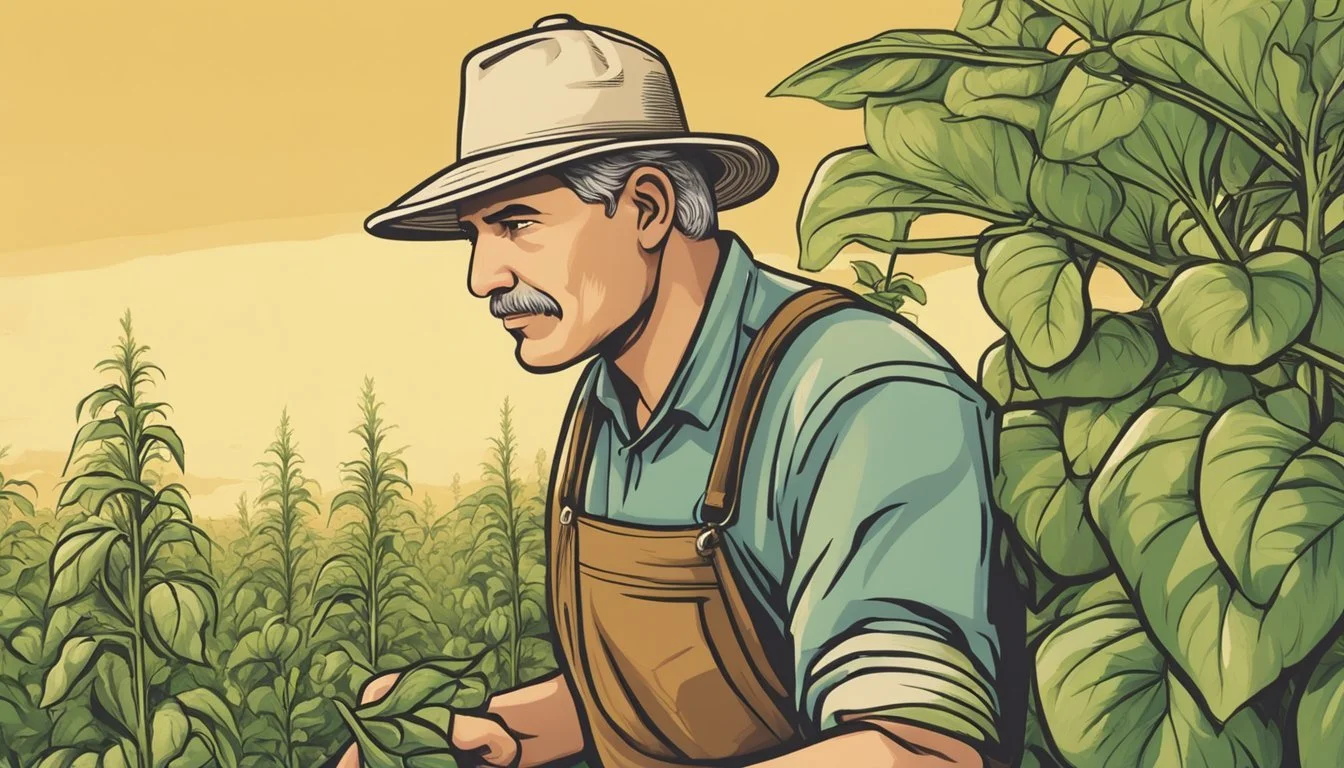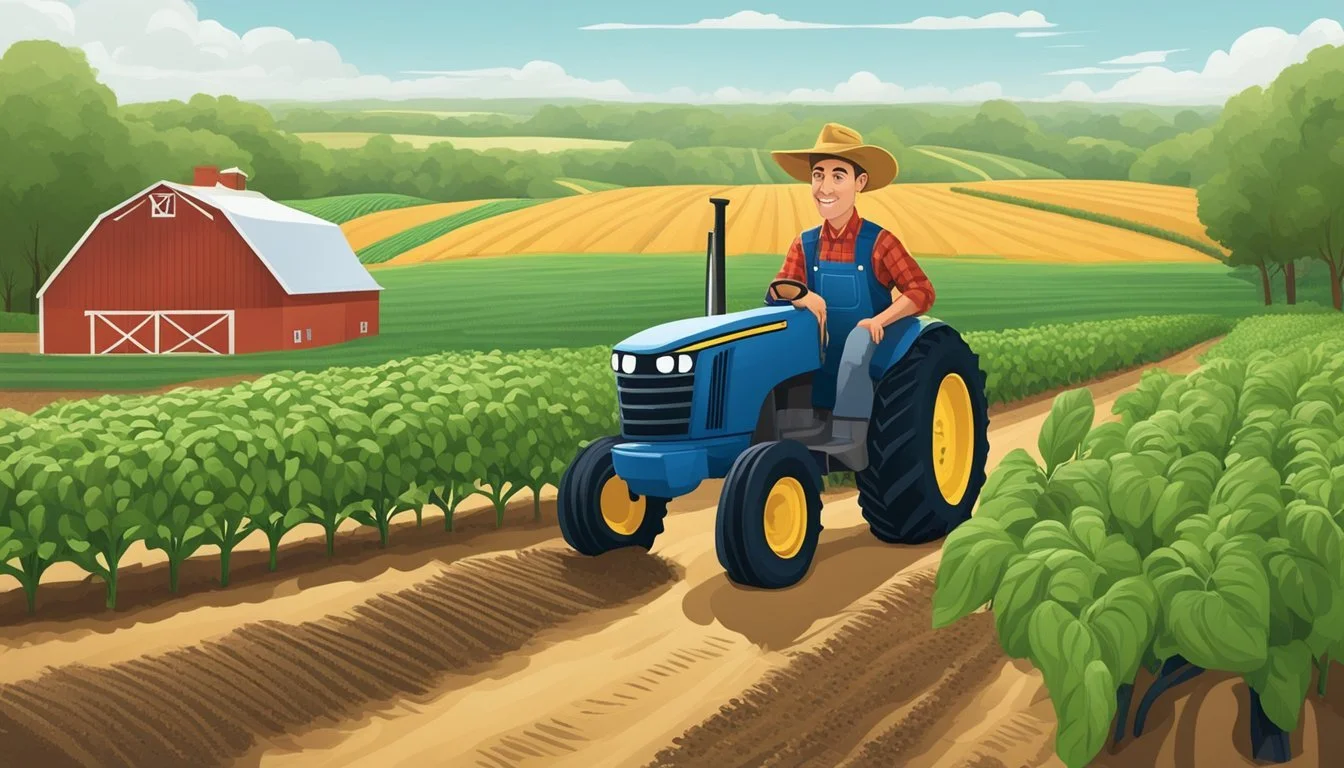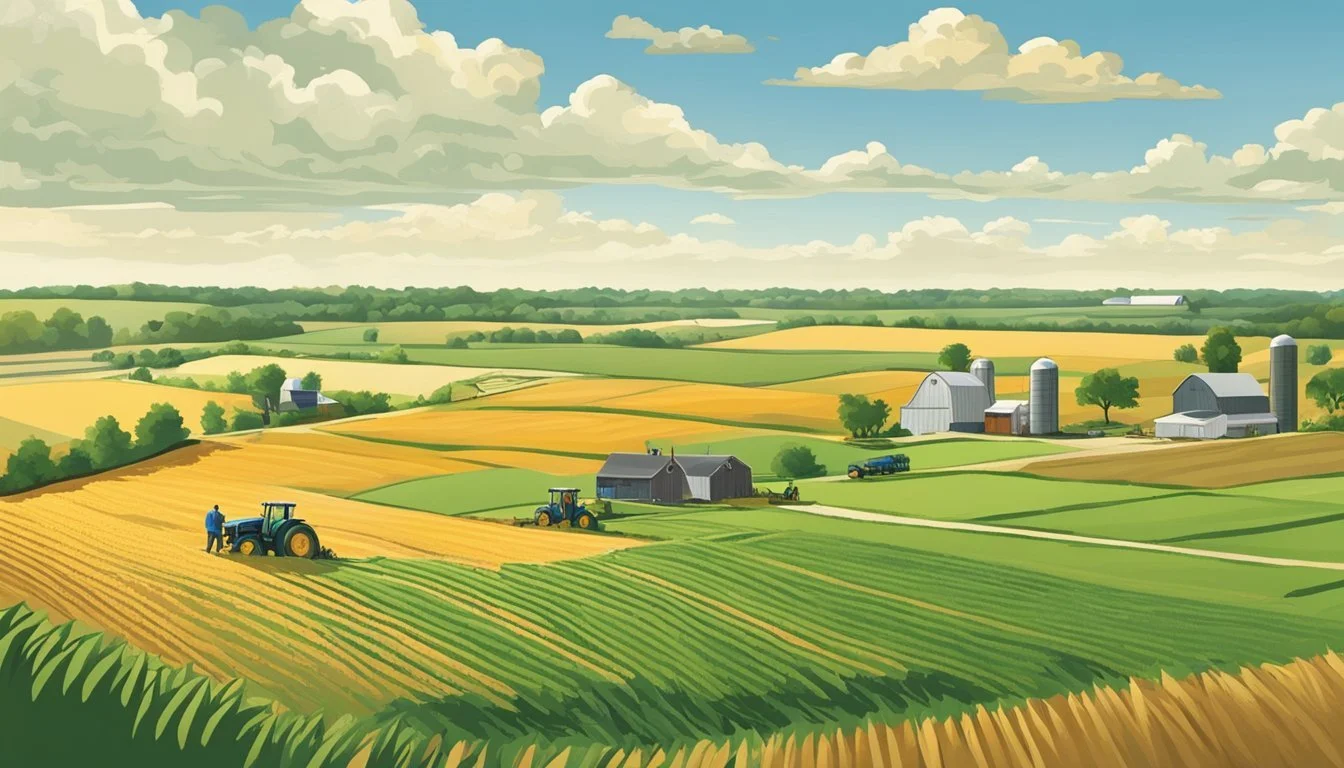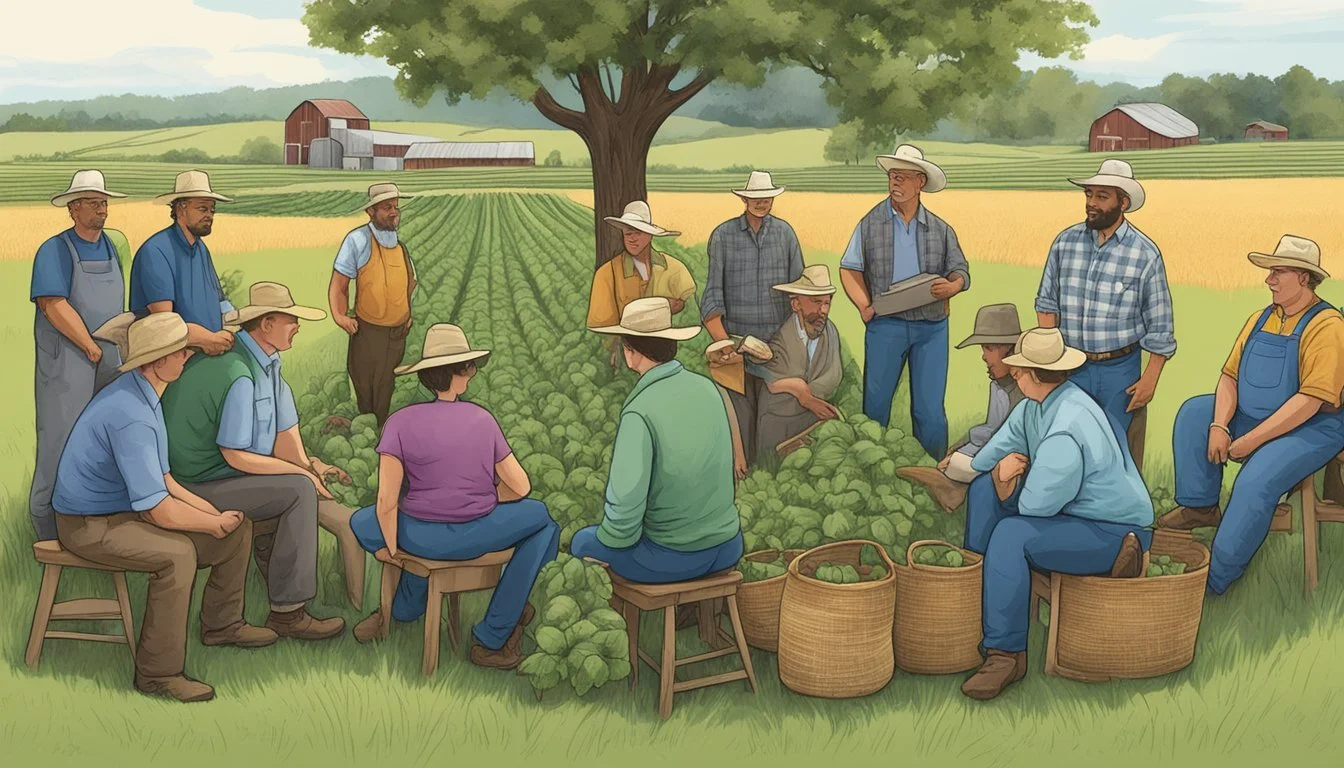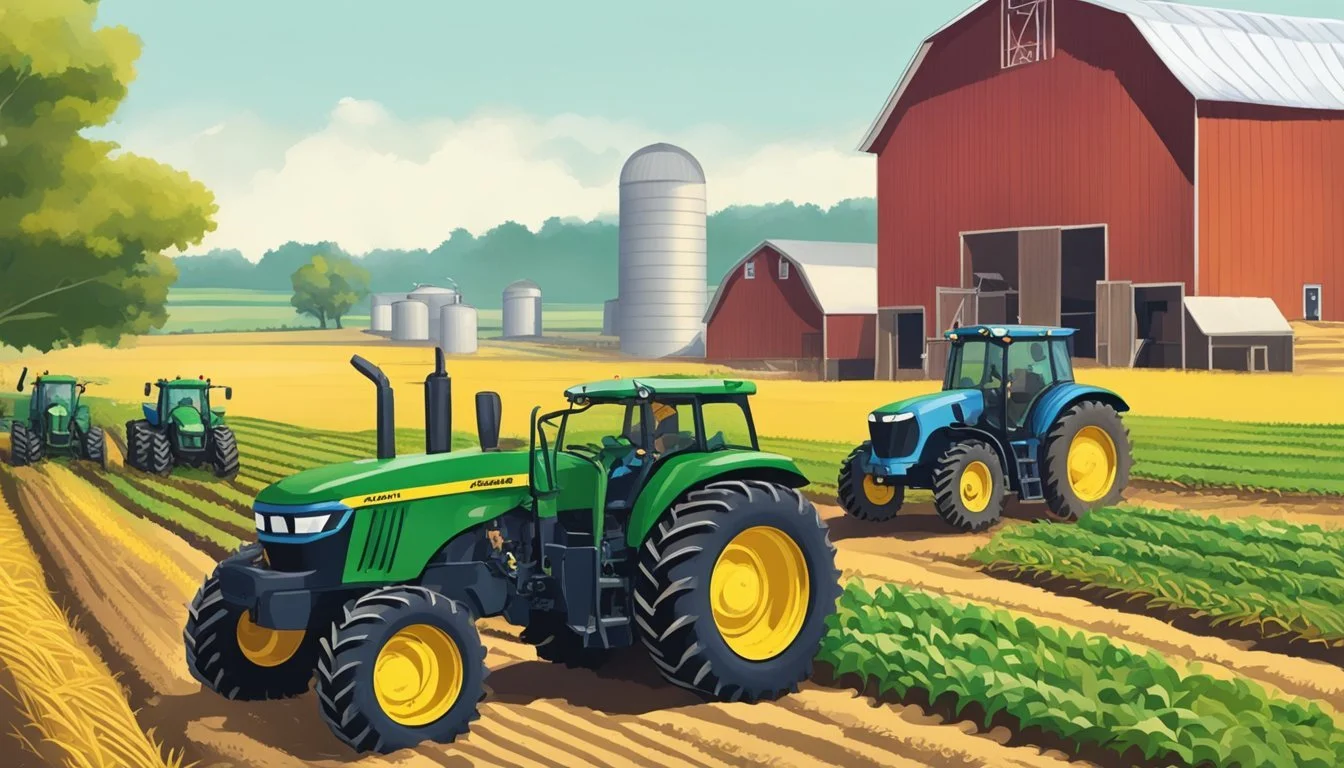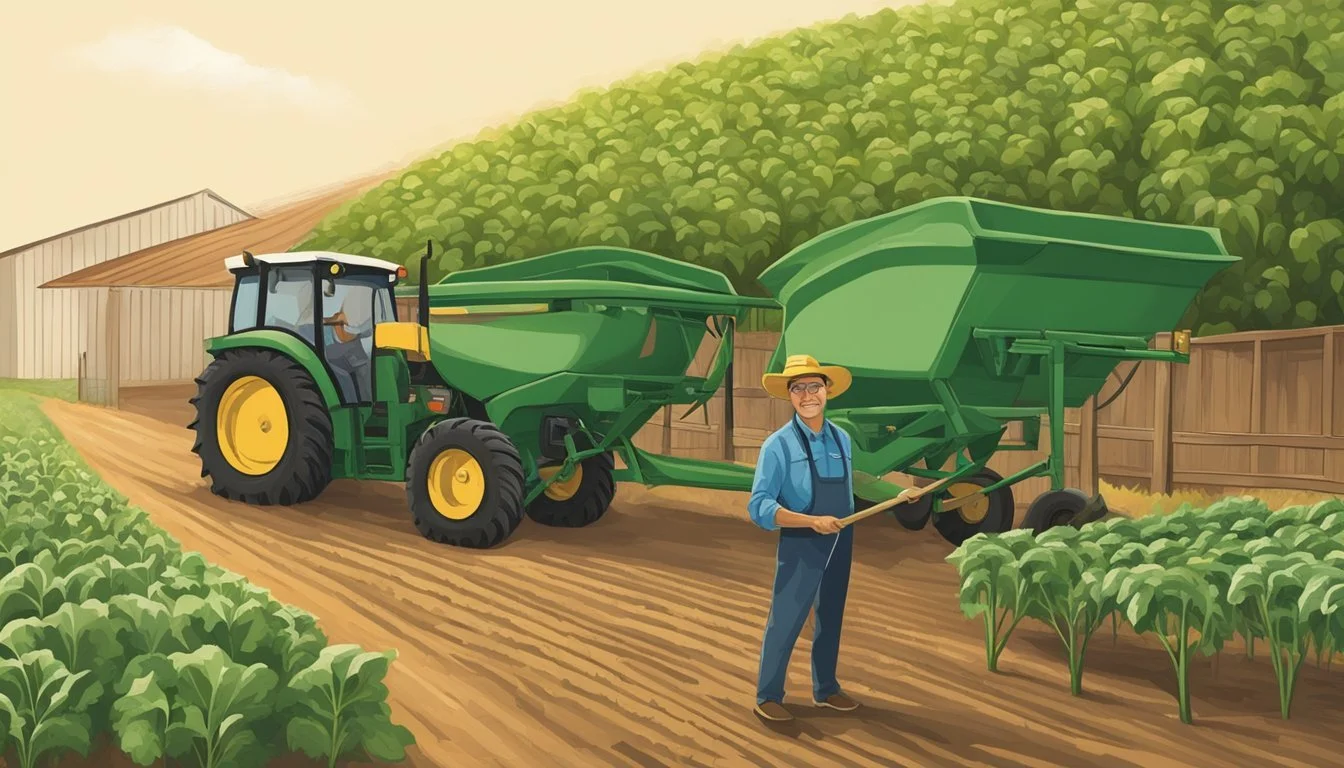Farming Grants Illinois
Navigating Opportunities for Agricultural Funding
Illinois offers a range of farming grants designed to support the agricultural industry, which is a critical component of the state's economy. These grants aim to provide financial assistance to farmers and agricultural businesses, helping them to start, grow, and diversify their operations. The Illinois Department of Agriculture, for instance, distributes funds received from the U.S. Department of Agriculture through the Specialty Crop Block Grant - Farm Bill. This funding supports local initiatives that improve the competitiveness and sustainability of specialty crops.
In addition to state-level support, various organizations and programs contribute to the development of Illinois agriculture. The Illinois Farm Bureau has introduced the Rural Development Grant Program, focusing on rural advancement projects with positive impacts on their members and other rural Illinoisans. Aligning with state and local priorities, this program emphasizes the importance of strategic development in rural farming communities.
Furthermore, the Illinois Stewardship Alliance, backed by the Chicago Region Food System Fund, has launched the Illinois Farmer Resilience Fund. This initiative provides financial grants to a select number of local food producers, aiding them in adapting their businesses to satisfy the increasing demand for local food. Grants ranging from $5,000 to $20,000 enable these producers to scale their operations effectively. Such funding opportunities are indicative of a concerted effort to fortify the agricultural sector in Illinois, ensuring it remains adaptive and resilient.
Eligibility Criteria
In Illinois, various farming grants provide financial support tailored specifically for different types of agricultural enterprises and the unique needs of their applicants. Understanding the eligibility requirements is paramount for farmers seeking funding opportunities.
Types of Farms
Dairy Farms: For the Dairy Business Innovation Alliance (DBIA) program, dairy farms can apply for grants to innovate and implement new ideas.
Livestock and Specialty Crops: Grants may be available for farms specializing in livestock, specialty crops, and even urban agriculture initiatives.
Applicant Requirements
Socially Disadvantaged Farmers: Certain programs, such as the Equity Agriculture Programs, are designed to support socially disadvantaged farmers, ensuring inclusive opportunities.
Conservation Practices: Farmers need to demonstrate soil erosion issues and have a local SWCD-approved conservation plan for sustainable agriculture grants.
Local Cooperation: Applicants must show alignment with local government priorities and cooperation with the Illinois Farm Bureau for the Rural Development Grant Program.
Eligibility varies by program, with some focused on economic development in rural areas, while others are available to urban agriculture projects aiming to introduce conservation and sustainability practices.
Types of Grants
In Illinois, farmers can take advantage of various grant opportunities at the federal, state, and local levels. These grants are designed to support agriculture through funding for specialty crops, rural development projects, resilience, and innovation.
Federal Grants
The U.S. Department of Agriculture (USDA) offers numerous grants, such as the Value Added Producer Grants (VAPG). VAPG, part of the Local Agriculture Market Program (LAMP) from the 2018 Farm Bill, allocates approximately $31 million in funding. Producers may receive up to $75,000 for planning grants and up to $250,000 for working capital grants. Another USDA initiative is the Urban Agriculture and Innovative Production (OUAIP) grants, which support urban farming practices with up to $7.5 million available for grants.
State Grants
The Illinois Department of Agriculture manages state-funded grant programs like the Illinois Specialty Crop Block Grant. It distributes funds received from the USDA to support the specialty crop industry across Illinois. These state-administered grants focus on enhancing the competitiveness and sustainability of Illinois specialty crops.
Local Grants
At the local level, entities like the Illinois Farm Bureau (IFB) have introduced the Rural Development Grant Program. This program targets the empowerment of Farm Bureau members and rural Illinois communities. It aligns with local government priorities and IFB policies to drive positive impacts in rural development. Additionally, the Illinois Stewardship Alliance, supported by the Chicago Region Food System Fund, has launched the Illinois Farmer Resilience Fund. This fund grants $5,000 to $20,000 to local food producers to scale and adapt operations, meeting the increased demand for local food.
Application Process
When applying for farming grants in Illinois, potential recipients need to prepare specific documents thoroughly and adhere closely to the established submission guidelines to ensure their application is considered.
Documentation Needed
Before applying, applicants must gather necessary documentation, which typically includes:
Business Plan Outline: A clear and robust business plan that outlines the intended use of the funds, the potential impact on the business, and how it supports the development of the agricultural sector.
GATA Registration Proof: Confirmation that the applicant is registered and in good standing with the Grant Accountability and Transparency Act (GATA) portal.
Required Forms: Completion of forms such as the AD 1026, which is necessary for land with highly erodible soils that are to be farmed.
Submission Guidelines
Applicants should abide by the following guidelines when submitting their applications:
Application Deadline: March 15, 2024, by 11:59 pm CST.
Email Submission: Applications and all supporting documents must be sent in one email to avoid misplacement and ensure all materials are reviewed together.
Email Address: The complete application packet should be submitted to the designated official email address provided by the grant program.
Templates and Formats: Utilize the official application templates and adhere to specified formatting requirements to ensure the application is processed without delays.
Available Resources
A variety of resources are available to support Illinois farmers, including educational programs, financial advisement, and access to agriculture and food specialists. These resources are designed to empower farmers with the tools and knowledge they need to succeed.
Educational Workshops
Workshops and training sessions are critical components for advancing farm operations. The Illinois Farm Bureau (IFB) and other agriculture-focused organizations frequently offer workshops that align with IFB policy. These workshops cover a range of topics from crop management to farm sustainability practices.
Financial Advising
Access to financial advising is essential for farmers looking to start or expand their operations. Grants such as those offered by the Dairy Business Innovation Alliance provide financial aid for innovative projects, while funds like the Illinois Farmer Resilience Fund, supported by the Chicago Region Food System Fund, offer monetary assistance ranging from $5,000 to $20,000 to local food producers.
Agriculture and Food Specialists
The expertise of agriculture and food specialists can be invaluable. Farmers in Illinois have the option to consult with specialists on various subjects — from urban farming practices such as soil health and composting to innovative conservation techniques. These specialists help farmers apply for grants like the Conservation Innovation Grants, and they provide guidance on implementing more efficient agricultural systems.
Support for Specialized Agriculture
In Illinois, various grant programs focus on advancing specialized agriculture by promoting sustainable practices, supporting organic farming, and encouraging the cultivation of diverse crops and livestock.
Sustainable Practices and Conservation
The Illinois Department of Agriculture administers grants aimed at enhancing sustainable farming practices and conservation efforts. These funds support initiatives that improve soil health, water quality, and other critical environmental outcomes. Agricultural professionals are incentivized to invest in technologies and practices that contribute to long-term environmental stewardship.
Key initiatives include:
Investment in precision agriculture technologies
Implementation of cover cropping and crop rotation
Development of conservation tillage practices
Organic Farming Support
Grants provided by federal and state programs are available to Illinois farmers who are either transitioning to organic agriculture or expanding their existing organic operations. These grants offer financial assistance, reducing the economic barriers to obtaining organic certification and facilitating market competitiveness.
Support includes:
Cost-sharing for certification expenses
Training in organic farming techniques
Assistance in accessing organic markets
Support for Diverse Crops and Livestock
The state of Illinois promotes the cultivation of specialty crops through grant initiatives like the Specialty Crop Block Grant Program. This effort is designed to elevate the competitiveness of fruits, vegetables, nuts (how long do nuts last?), and nursery crops. Farmers are encouraged to diversify their agricultural operations, fostering a robust agro-economy and safeguarding against market fluctuations.
Diversity Enhancement:
Funding for research on various specialty crops
Support for marketing diverse agricultural products
Grants aimed at innovative livestock programs
Economic Development Opportunities
Grants in Illinois are catalyzing economic development opportunities within the agribusiness sector, focusing on value-added products, infrastructure development, and agriculture-related tourism to foster rural prosperity.
Value-Added Products
Illinois Farm Bureau has initiated a program to support projects that develop value-added products, directly benefiting its members and enhancing rural economies. Value-added products allow farmers to diversify their income streams and increase the overall value of their raw agricultural produce through processing, packaging, or branding.
Infrastructure Development
The Rural Development Grant Program is instrumental in developing critical infrastructure that bolsters the efficiency of rural areas. Enhancing infrastructure—including energy-efficient equipment in grocery stores—provides immediate economic benefits, laying the groundwork for long-term growth within the agricultural sector.
Agriculture-Related Tourism
The Tourism Incentive Grant Program is designed to inject vitality into the agritourism niche, inviting visitors to experience Illinois' rich agricultural heritage. This program stimulates local economies by drawing tourists, which in turn increases revenue for farm-based attractions and related businesses.
Advocacy and Community Engagement
In Illinois, effective advocacy and community engagement are pivotal for enhancing the agricultural landscape. They ensure that farmers and local food producers have a say in the development and implementation of policies that affect their livelihoods.
Policy Advocacy
Farmers and rural communities often engage in policy advocacy to influence the direction of agricultural legislation. The Illinois Farm Bureau, for instance, has initiated programs that align local government priorities with those of Farm Bureau members, ensuring rural development projects receive due attention and support. These initiatives often highlight the imperative for funds and resources that empower rural Illinoisans and strengthen the agriculture sector.
Local Food Systems
Support for local food systems is crucial for community growth and sustainability. Programs such as the Illinois Department of Agriculture's collaborations focus on assisting socially disadvantaged and small-scale farmers. They aim to bolster local economies via urban agriculture, agribusiness, and community-specific food programs, which enhance accessibility to markets for local food producers and foster closer connections between producers and consumers.
Farmers' Voices
Farmers' voices are integral to the shaping and refining of agricultural practices and strategies. In Illinois, grant programs often incorporate feedback mechanisms to allow participants to contribute their perspectives and experiences. This participation ensures that agriculturists are not just beneficiaries but also active contributors to the evolution of the agriculture sector. They advocate for their needs, ensuring that support systems like grants and educational resources are well-tailored to address the specific challenges they face.
Funding for Expansion and Scaling Up
In Illinois, farmers have opportunities to receive financial aid focused on growing their operations and enhancing market presence. These initiatives are designed to support agricultural scalability, improve marketing strategies, and facilitate distribution efforts.
Assistance for Growth
The Illinois Farmers Resilience Fund offers grants specifically tailored for local food producers aiming to scale up their business operations. This fund aids in investing in infrastructure critical to adapting business models to fulfill the increasing demand for locally grown food. Farmers can utilize such funding to not only increase production capacity but also to incorporate advancements in technology and practices that lead to more sustainable growth.
Marketing and Distribution
For farmers focused on marketing and distribution, grants are available to strengthen their market outreach and build robust distribution networks. Entities including farms, businesses, and cooperatives may apply for financial assistance of up to $150,000 for initiatives geared towards infrastructure for distribution. These funds are instrumental in bridging the gap between local produce and consumers, establishing a more resilient local food system.
Outreach and Inclusion Initiatives
Illinois has prioritized the integration of equity across farming grant programs to support farmers who have been historically underrepresented, such as minorities and women, as well as to offer distinct resources for veterans transitioning into agriculture.
Programs for Minority and Women Farmers
Illinois Department of Agriculture facilitates equity-focused initiatives that provide access to state and federal resources tailored specifically for socially disadvantaged farmers. This includes women and minorities in the farming sector who may benefit from programs aimed at leveling the playing field and offering support in areas like funding, business planning, and agricultural education. Known initiatives include:
Grant opportunities for capacity building
Networking events tailored for women in agriculture
Educational material and workshops focused on the unique challenges faced by minority farmers
Veterans in Agriculture
Veterans are also a key focus, with dedicated resources aimed at reintegrating and supporting their foray into farming. Initiatives often encompass:
Access to financial grants for veterans to establish or enhance their agricultural businesses
Training and mentorship programs to equip veterans with the necessary skills for successful farming
Support networks consisting of other veteran farmers to encourage community and exchange of best practices
Illinois's approach ensures a more inclusive environment within the agricultural sector, fostering diversity and promoting equity across the board.
Challenges and Adaptation Strategies
Illinois farmers face several challenges that affect the stability and success of the agriculture sector. To ensure the resilience of the food system and maintain a diverse local food supply, these issues must be addressed with proactive strategies.
Weather and Climate Changes
Illinois farmers are increasingly dealing with the impacts of weather and climate changes, which create unpredictable farming conditions. Strategies such as the adoption of integrated crop and livestock systems improve farm resilience. Projects focused on climate adaptation have received funding, recognizing the need for practices that mitigate the effects of extreme weather events on crop production.
Economic Fluctuations
The economic fluctuations in agriculture can pose significant risks to farmers. Market volatility affects profitability, necessitating the development of a financial safety net. Grant programs in Illinois aim to bolster the sector's competitiveness by providing funds that help farmers navigate these economic challenges, ensuring a stable supply and diversity of local food.
Market Demands
Farmers must also adapt to changing market demands as consumers become more aware of sustainable practices. Competitive grants support interdisciplinary teams in Illinois who are working on regenerative agriculture projects. These initiatives focus on meeting market demands for sustainably produced crops and contribute positively to the local food system.
Additional Support Programs
Farmers in Illinois can access a variety of additional support mechanisms designed to bolster agricultural activities. These include financial assistance through loan programs, scholarships, and grants for educational advancement, as well as conservation initiatives aimed at promoting sustainable agriculture practices.
Loan Programs
Farm Service Agency (FSA) loans cater to beginning farmers and those who have experienced financial setbacks, often due to natural disasters. Loan options vary, with the FSA providing resources to establish and enhance farming operations:
Operating loans for daily expenses
Ownership loans for purchasing land
Emergency loans for recovery from adverse events
Scholarships and Grants for Education
Scholarships and grants are available to individuals pursuing educational programs in agriculture. While specific scholarships were not detailed in the search results, they are typically offered by:
Universities and colleges with agricultural programs
Agriculture-related non-profits
Local farm bureaus
Conservation Programs
Conservation programs play a crucial role in supporting the ecological sustainability of farming. Initiatives can include:
Water conservation measures
Soil preservation efforts
Educational programs for sustainable farming practices
Addressing Food Insecurity
Efforts in Illinois are geared towards reinforcing the state's food system infrastructure and addressing food insecurity through targeted initiatives. Emphasis is placed on enhancing the distribution and availability of nutritious food, particularly to underserved communities.
Food Access Initiatives
The Illinois Department of Agriculture (IDOA) offers competitive grants aimed at strengthening the food supply chain. These funds are part of a conscious effort to improve food access across the state. Specific programs include the acquisition and distribution of agricultural products from local farms to the emergency food system. Additionally, grants support projects that enhance the capacity for transporting, storing, and distributing food to areas that currently lack sufficient access.
Key Initiatives:
Acquisition of local agricultural products.
Distribution to the emergency food system.
Nutrition and Health Outreach
Illinois also fosters nutrition and health through community-level outreach programs. The Eco-Friendly Mobile Farm Stand Project, a 501(c)(3) nonprofit, embodies such an outreach by supplying urban farmers with electric mobile farm stands. This facilitates the delivery of fresh produce to residents facing food insecurity, mitigating expenses related to fuel and helping to preserve air quality.
Outreach Efforts:
Electric mobile farm stands for urban farmers.
Delivery of fresh, healthy produce to communities.
Through these structured strategies, Illinois aims to create a more equitable and health-centered system that addresses the roots of food insecurity while ensuring that communities have consistent access to nutritious food options.


